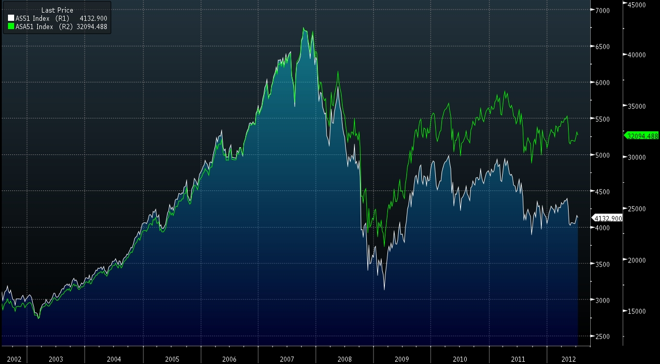A Beginner s Guide to Investing ~ Levo League
Post on: 20 Апрель, 2015 No Comment

A Beginners Guide to Investing
We know saving money is good. We know to take advantage of employer-sponsored plans like 401(k)s, retirement accounts like traditional and Roth IRAs, and to maintain cash on hand for emergencies.
But do you know how to invest your savings? Finance is full of noise and jargon that make it seem complex.
A confusion of choices keeps some people from learning more. But the most impactful things you need to know are surprisingly simple. Ironically, by keeping things simple and sticking to your strategy, you may do better than the average investor. Here are some good takeaways to get you started.
Don’t be intimidated…
… ESPECIALLY if being intimidated prevents you from making decisions about investing your money. Please do not sit in cash because you don’t understand your options, or don’t think you can learn. You don’t need to be an expert in kinesiology to know exercise is good for you, right? Likewise, you don’t have to understand macroeconomic trends in Southeast Asia to know diversification and low fees are good for you. One spreads your risk, the other saves you money.
If you want to learn more, you may need something simpler than The Wall Street Journal. Bloomberg News or investing websites. Much as they try to explain themselves, their core readership is made of market junkies and professionals, who thrive on technical nuance that simply doesn’t impact the essential strategies of smart investing.
Try Investopedia.com to learn about market basics or look up the definitions of unfamiliar words. If you have accounts at custodians like Charles Schwab or Fidelity, ask if they have call-in resources where you can speak to an advisor, or use fee-for-service companies like LearnVest to orient yourself.
Finally, algorithmic advisors (often called robo-advisors) are aggressively competing for business from young investors, and trying to make advice more accessible and easy to understand. Explore their websites and services to get recommendations on funds, track performance, and even delegate management of your portfolio for a fee.
Lead a balanced investing lifediversify.
Thinking you can get healthy by eating only kale and drinking lemon water typically backfires, right? Investing isn’t that different. Buying a lot of stock in one company or industry (called “overweighting” or “overconcentration”) can lead to volatility and poor performance long term. Not unlike me when I tried a juice diet.
A balanced diet is healthier and is more likely to lead to permanent weight loss and productivity. Same for your portfolio. You can think of asset classes (i.e. stocks or bonds) as major food groups, sectors and countries like macronutrients, and companies like micronutrients. Just because the media touts a particular food or nutrient as the holy grail of health doesn’t mean you should abandon everything else.
The great news is it doesn’t take much work to buy diversification. Rather than researching companies yourself and deciding which stocks to buy, almost every major brokerage firm (like Charles Schwab, Fidelity, Vanguard, etc.) offers a blend of stocks in nicely packaged funds. These are referred to as mutual funds, index funds, or exchange-traded funds (ETFs).
They’re all great tools, but ETFs stand out because they’re essentially mutual funds without an expensive manager, marketing fees or tax issues. Some brokerages like TDAmeritrade, Fidelity, and Schwab even let you buy and sell them for free. That’s crucial when you want to rebalance.
So what does a diversified portfolio look like?
When saving for retirement, you cannot go wrong with one or just a few broad market funds. Examples include SPY, which tracks the 500 largest US companies across all sectors, URTH, which tracks developed markets worldwide, and Target-Date Funds, which are based on your expected retirement age, and automatically shift to bonds as you get older.
They are cheap to buy and own, and if you sit on them for years without selling, you will probably beat some of the highest-paid money managers in the country. (No kiddingmany studies show that most professional money managers and stock-picking individuals underperform the market. All that effort for nothing…).
Here’s another diet analogy for youstick to your strategy. Once you have your diversified portfolio, don’t try to sell out when the markets get bad or buy more of one thing just because it performed well last month. Don’t try to guess when a stock is undervalued and buy it. Market timing is the yo-yo dieting of investing. Despite short-term wins, you end up losing out on steady returns long-term.

The Power of Compounding
One pleasantly surprising aspect of investing money is the exponential impact a very small contribution can make. This is especially true for young investors, since they can give their savings the most time to grow. A dollar earned today is far more valuable to you than the dollar you’ll make later in life, because the dollars you make today are reinvested, making more dollars and so on. We don’t get that luxury when we’re older.
We all know why it’s important to save early. But if you let your retirement assets sit in cash, the return on your dollar is far less than 1%, with interest rates as low as they are today. It’s going to take a lot of time for that dollar to grow.
If you need the money soon for a large purchase (say, a house), that might not be a problem. If you can wait before you use the money (i.e. if you’re under 40 and don’t plan to retire until your 60s), owning funds with a lot of stocks is going to improve the likelihood of powerful compounding. The cost? A few years when your portfolio goes down, possibly by a lot, during a market crash. If you don’t cash out, those are just unrealized paper losses. And if you don’t need the money for a long time, does it really matter if the value fluctuates in the short term?
Parting thoughts
From my time in the industry, I’ve seen far fewer women taking control of their investments than men. If we are leaning in for higher pay and more career opportunities, we shouldn’t let the ball drop on making the most of the money we earn. If you maximize your salary, but don’t invest it, you’re missing the point!
Building your knowledge and portfolio now means that you’ll have a huge advantage down the road. And if you just simply can’t get interested, there are plenty of companies out there who would love to help you out. Happy investing!
The views expressed represent the opinion of the author and are not intended to reflect those of FutureAdvisor or serve as a forecast, a guarantee of future results, investment recommendations or an offer to buy or sell securities.
Photo: Thinkstock














